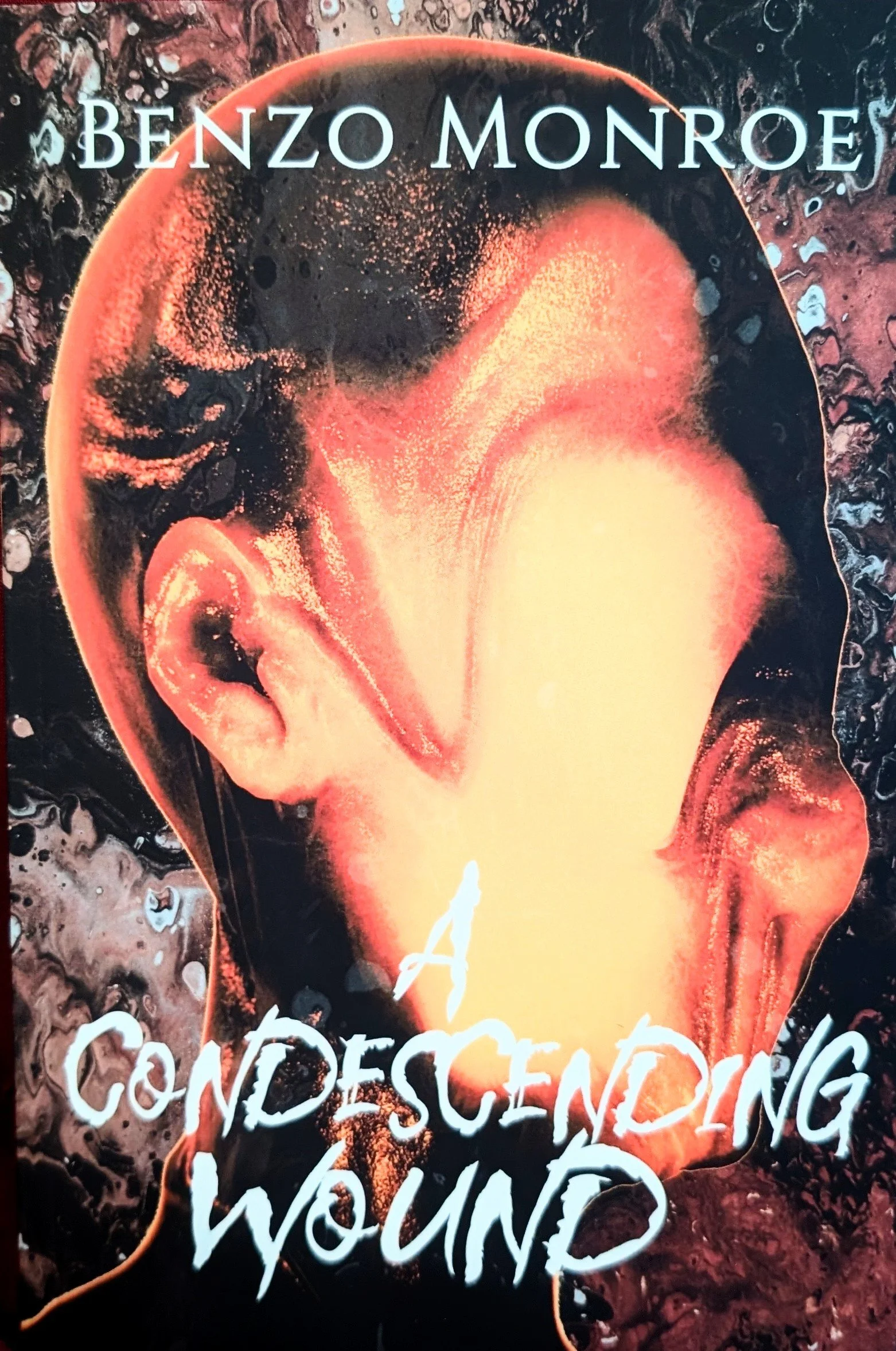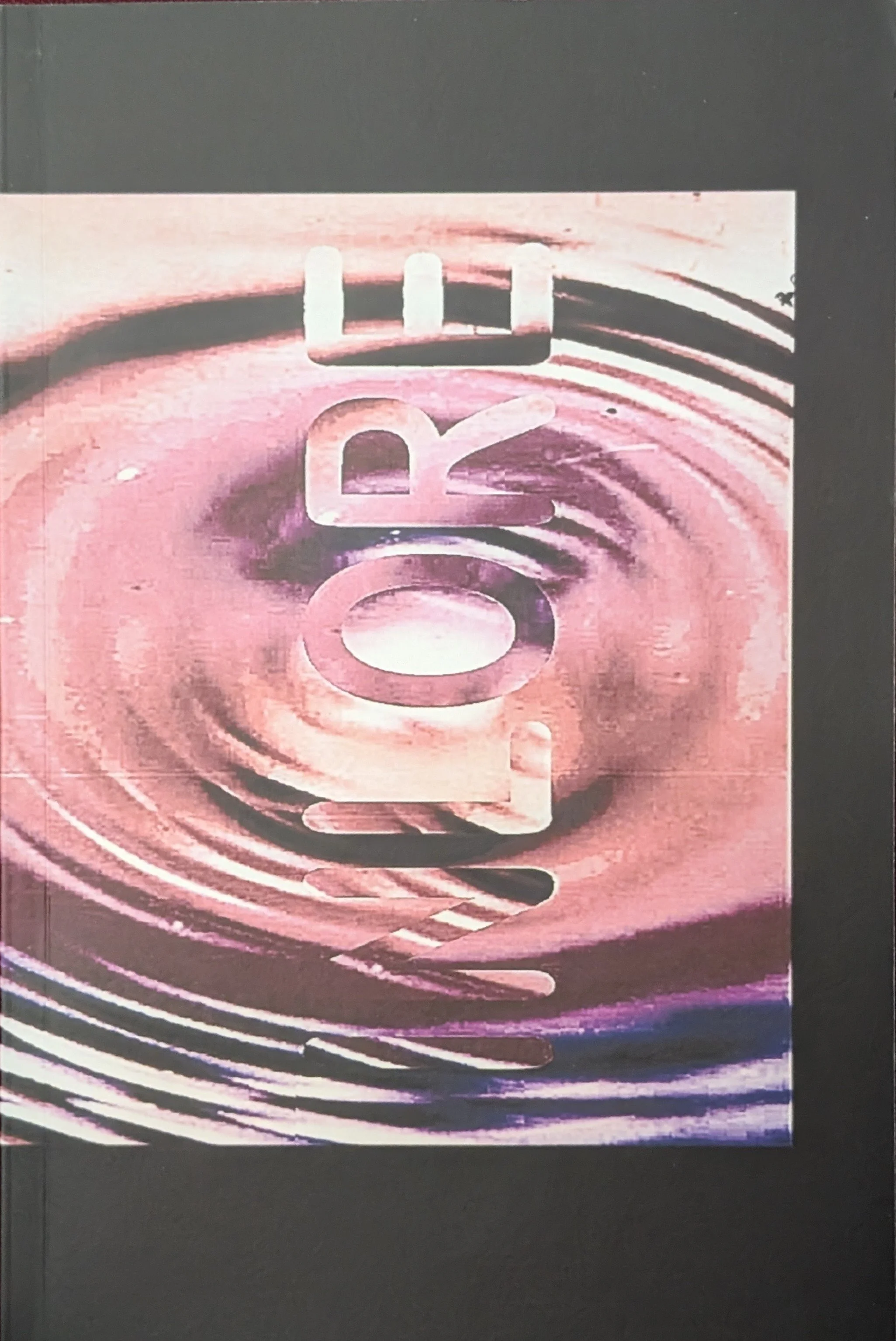Benzo Monroe’s Condescending Wound
A Condescending Wound, a soul-crushing collection of poetry, is the latest offering from poet Benzo Monroe. This collection explores the dark corners of his mind, revealing a terrifying landscape of despairing emotions and existential calamities, the weight of each despair palpable.
A Condescending Wound, a soul-crushing collection of poetry, is the latest offering from poet Benzo Monroe. This collection explores the dark corners of his mind, revealing a terrifying landscape of despairing emotions and existential calamities, the weight of each despair palpable.
The opening lines of A Condescending Wound set the tone for what is to come:
"If you relate to this / I'm sorry / You deserve better / I don't"
These words, on their own, are poignant, resonating with a quiet, melancholic beauty. They create a feeling of surrender, a longing to succumb to life's difficulties. This, in juxtaposition with the published book, however, reveals a certain irony: Monroe's search acknowledges finding what he truly needs to exorcise his demons—writing. Perhaps, writing to stay alive, writing to give living a purpose. It's a bitter sentiment, heavy and lingering, that sets the tone for the entire book.
His fixations on death consume these pages. You may find yourself lost in his world, a suffocating atmosphere of broken dreams and unfulfilled desires, the chilling weight of his loneliness pressing down. Monroe is unafraid of his raw emotions; there's no sugarcoating or pretense here, only a brutal honesty that will have readers reeling from the gut-wrenching truths he exposes. There's a haunting, painful elegance in his writing; his raw tone evokes a bittersweet sorrow and grace. He even lashes out at the reader, citing that:
"But you… / A person like you… / Is still somehow alive taking up space and air that someone / That wasn't a complete waste of space could be using right now"
He also disparages himself, at times angrily, albeit still mournfully. Monroe has this to say about his self-loathing:
"Pissing on my own legacy / To get used to it / For the day / They do it to my grave"
A bleak outlook on an emotion that he feels deeply; a sense of never being missed, even after his vicious statements of suicidal ideation, even after his confessions of not having anyone there to stop him from his own self-defeat and idealized death.
The poems themselves are often short, yet they're powerful enough to make you feel the weight of his struggles. He writes with a conversational tone that makes them come alive. There is no pretentiousness in his style; it's unadorned and brutally honest, which can often be uncomfortable to read, especially if you can relate to his perspective. The subject matter is dark, but there's a certain beauty in his darkness, as he eloquently states:
"We don't talk about it / We know what's happening / The worst kept secret / Slowly walking on a tightrope"
Monroe's agony of existence throbs from every line, a raw, visceral ache that resonates with each successive poem, a pain that leaves a mark on the soul, one many readers will identify with, if not with an objective empathy.
In Benzo Monroe's A Condescending Wound, he has woven together a narrative of despair that is sure to leave you reeling at the depth of his humanity, yet it's also strangely alluring in its brutal beauty. This collection is not for everyone; those looking for a light-hearted read should look elsewhere. But for those who can handle the darker corners of misery and have an interest in what makes Monroe tick in despair and what virulent anguish feels like, the book is well worth your time.
Benzo Monroe’s
Condescending Wound
Monroe’s Linktree HERE
N. Casio Poe’s INLORE
INLORE, a novella by N. Casio Poe, is an experiment in intertextuality and the blurring of lines between reality, fiction, and fantasy. A collage of quotes from various sources—newspaper articles, books, erotic videos, and website excerpts, among others—gives form to the aphoristic prose throughout the book. These fragments and Poe's own narratives form a chronicle that defies traditional notions of character development. The plot progression presents an abstract exploration of the dark aspects of the enigmatic figure known in the book as Ren Calow, a would-be director with a focus on a series of what the novella describes as the "Inlore Slayings." Calow, a guerrilla-style filmmaker, eventually shelves his film concerning victims that range from Louisiana to Florida.
INLORE, a novella by N. Casio Poe, is an experiment in intertextuality and the blurring of lines between reality, fiction, and fantasy. A collage of quotes from various sources—newspaper articles, books, erotic videos, and website excerpts, among others—gives form to the aphoristic prose throughout the book. These fragments and Poe's own narratives form a chronicle that defies traditional notions of character development. The plot progression presents an abstract exploration of the dark aspects of the enigmatic figure known in the book as Ren Calow, a would-be director with a focus on a series of what the novella describes as the "Inlore Slayings." Calow, a guerrilla-style filmmaker, eventually shelves his film concerning victims that range from Louisiana to Florida.
Readers must interpret the meaning within this literary mosaic. The quotes do not appear to follow a specific order; instead, they weave together various perspectives of not only the anti-protagonist, Ren Calow, but also of the metanarrative of the author himself. Some might find it challenging or even impossible to discern how these pieces fit together into one cohesive whole, but the complexity is perhaps part of the author's point. One might better appreciate the book as an intellectual critique of what one might say is an obsessed, psychopathically kaleidoscopic mind rather than as a classically entertaining story.
Poe's vast knowledge of media themes and sources create complex and layered motifs. The reader must consider how these fragments relate to Ren Calow and their place in the narrative. Each quote is both familiar and also new when presented in this metanarrative aspect. A keen mind is required for full appreciation.
INLORE offers no relief from its grim philosophical themes. The style combines disturbing graphic descriptions of sex and violence with complex, abstract imagery that reflects the fractured mind of Calow. An intense experience that will leave readers with much to ponder on humanity, morality, and what they find deplorable, may also find this novella curiously intriguing.
N. Casio Poe's INLORE is a thought-provoking and unique novella, but its intense, gory imagery, presented in a somewhat randomized format, may not appeal to everyone. Deciphering the aphorisms and media requires considerable effort. However, readers intrigued by experimental writing may find the experience intellectually stimulating and memorable. I recommend the book to readers interested in postmodern literature or experimental storytelling. It's also a splendid choice for those who enjoy the literary aspects of true crime.

